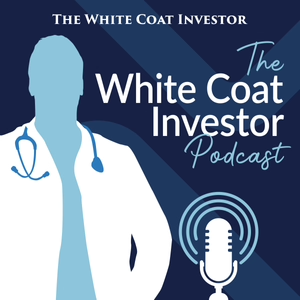
Episode #23 Embracing a Sustainable Diet with Brent Kim, MHS
09/28/21 • 42 min
Our daily food choices can have a lasting impact not only on our personal health but also on the health of our planet. The worldwide population is expected to reach 10 billion by 2050 and research shows that human dietary patterns may have a staggering effect on climate change.
Today we’re joined by Brent Kim, MHS a global disease epidemiologist and researcher at the Center for a Livable Future at Johns Hopkins School of Public Health. Kim has published works on sustainable diets, climate change, industrial food, animal production, soil safety, and urban food systems.
As we witness dramatic consequences of climate change, it’s clear that we must work together to lower greenhouse gas emissions. Kim outlines the criteria critical to a sustainable diet and how they play a role in climate change. He describes factors accelerating global emissions and the actions we must take now to avoid future disasters.
In this episode, Kim explains why meat consumption is a complex topic, and Dr. Maizes and Dr. Weil discuss motivations for adopting and maintaining vegetarian and vegan diets. The discussion includes meat alternatives, like plant-based-processed burgers and lab-grown meat, and addresses their health implications. Dr. Weil suggests lesser-known, low-food chain organisms like algae and insects as new sources of protein. All agree that integrative medicine and sustainability are founded on systems-based thinking, leading to the question, “what other societal changes are needed to meet the challenges of climate change?”
Our daily food choices can have a lasting impact not only on our personal health but also on the health of our planet. The worldwide population is expected to reach 10 billion by 2050 and research shows that human dietary patterns may have a staggering effect on climate change.
Today we’re joined by Brent Kim, MHS a global disease epidemiologist and researcher at the Center for a Livable Future at Johns Hopkins School of Public Health. Kim has published works on sustainable diets, climate change, industrial food, animal production, soil safety, and urban food systems.
As we witness dramatic consequences of climate change, it’s clear that we must work together to lower greenhouse gas emissions. Kim outlines the criteria critical to a sustainable diet and how they play a role in climate change. He describes factors accelerating global emissions and the actions we must take now to avoid future disasters.
In this episode, Kim explains why meat consumption is a complex topic, and Dr. Maizes and Dr. Weil discuss motivations for adopting and maintaining vegetarian and vegan diets. The discussion includes meat alternatives, like plant-based-processed burgers and lab-grown meat, and addresses their health implications. Dr. Weil suggests lesser-known, low-food chain organisms like algae and insects as new sources of protein. All agree that integrative medicine and sustainability are founded on systems-based thinking, leading to the question, “what other societal changes are needed to meet the challenges of climate change?”
Previous Episode

Episode #22 Mind-Body Approaches to Understanding and Healing Chronic Pain with Howard Schubiner, MD
Living with chronic pain can be both physically and emotionally challenging. Nearly 50 million individuals in the US report experiencing chronic pain. The symptoms may become worse over time, spread to new areas of the body, and result in restricted mobility and limitations in daily activities.
Evolving research has demonstrated that for some sufferers emotions can be the source of chronic pain and may be the key to treating the symptoms. Studies have demonstrated that identifying, expressing, and releasing difficult emotions, like fear, can successfully reduce chronic pain.
Our guest is Dr. Howard Schubiner, an internist, pediatrician, and director of the Mind Body Medicine Center. Dr. Schubiner and his colleagues have developed psychological treatments for chronic pain and created a series of studies to evaluate these treatments.
In this episode, Dr. Schubiner helps us to see pain with a new lens. He explains how chronic pain can be protective. He describes how brain-generated pain is different from structural pain.
Dr. Weil and Dr. Schubiner discuss the revolutionary work of the late Dr. John Sarno, a pioneer in treating patients with chronic back pain with mind-body medicine. Dr. Maizes describes how language and common approaches can reinforce a message of disease and perpetuate symptoms. Dr. Schubiner explains how pain reprocessing therapy can help to eliminate and even cure pain and why this therapy offers great hope to people who live with chronic pain.
Next Episode

Episode #24 Exploring Trauma, Addiction, and Emotional Pain with Guest Dr. Gabor Mate
Addiction is a public health crisis, made worse in the last year by the emotional stress and grief experienced by so many during the pandemic. It is characterized by compulsive actions despite harmful consequences.
Our guest on this episode is addiction expert and author, Dr. Gabor Maté. He is internationally known for his work on mind-body unity in health and illness, attention deficit disorder and other childhood developmental issues, and his breakthrough analysis of addiction as a psycho-physiological response to childhood trauma and emotional loss.
Dr. Maté contends that a deeper understanding of trauma is needed in healthcare to address the substance abuse epidemic. Together with Drs. Weil and Maizes, Dr. Maté, explore the roots of addictive behavior. He reasons, that at its foundation, “Addiction is an attempt to solve a problem.”
If you like this episode you’ll love
Episode Comments
Generate a badge
Get a badge for your website that links back to this episode
<a href="https://goodpods.com/podcasts/body-of-wonder-78883/episode-23-embracing-a-sustainable-diet-with-brent-kim-mhs-16704769"> <img src="https://storage.googleapis.com/goodpods-images-bucket/badges/generic-badge-1.svg" alt="listen to episode #23 embracing a sustainable diet with brent kim, mhs on goodpods" style="width: 225px" /> </a>
Copy




